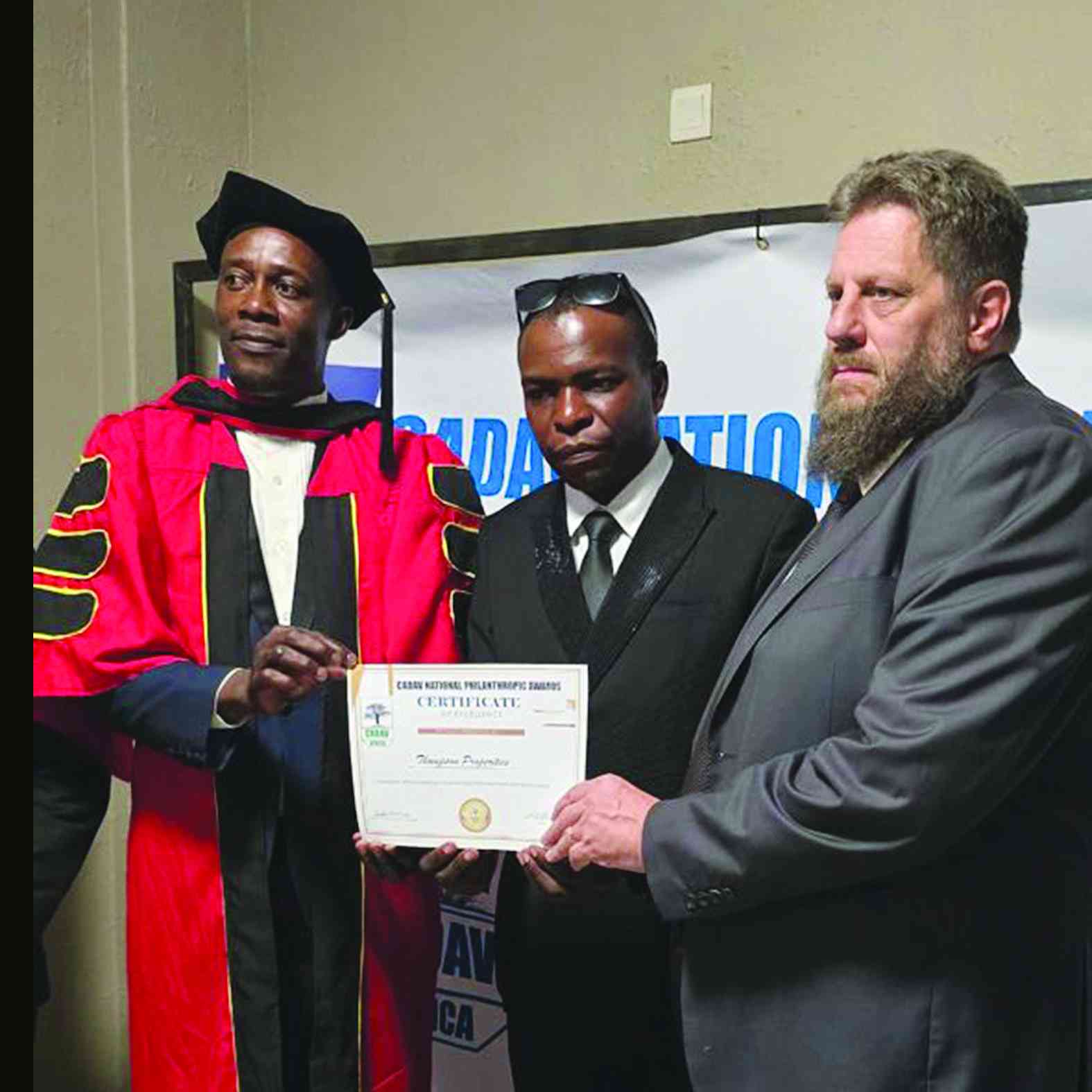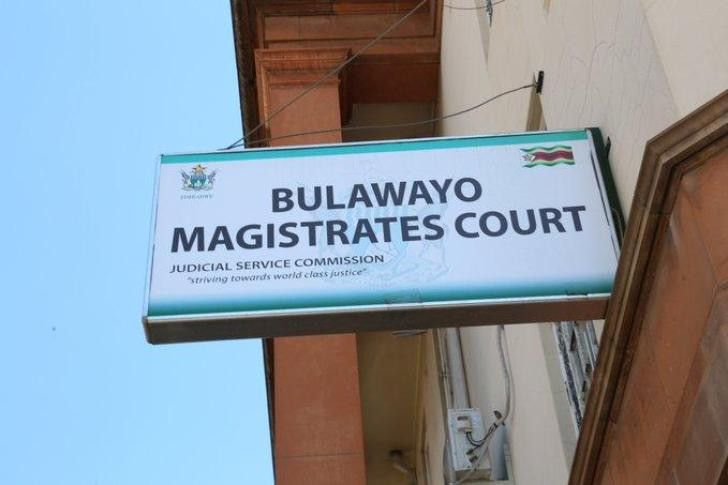AS the global phenomenon of Artificial Intelligence (AI) sweeps across various facets of our lives, it has seamlessly integrated into the very fabric of society.
From tailoring personalised recommendations on streaming platforms to intricately shaping our online experiences through advanced algorithms, the undeniable influence of AI resonates on a global scale.
Countries worldwide have embraced AI as a pivotal component of the Fourth Industrial Revolution (4IR), employing it in industrial production, economic growth, national security, and household applications.
While nations like Kenya, Ghana, Rwanda, and South Africa increasingly harness AI technologies, the Government of Zimbabwe is yet to fully acknowledge their potential. Ranked at 151 out of 194 in the Global AI Readiness Index of 2023 by Oxford Insights, Zimbabwe lags behind in capitalising on AI's transformative power.
AI, as a non-human technology replicating human intelligence for specific tasks, offers remarkable opportunities for growth but also introduces substantial disruptions and risks.
Financial experts predict that by 2030, AI could contribute over US$15 trillion to the global economy. Despite its association with tech hubs like Silicon Valley and Zhongguan Village, AI transcends geographical boundaries, proliferating globally.
Keep Reading
- Public relations: How artificial intelligence is changing the face of PR
- Queen Lozikeyi singer preaches peace
- Public relations: How artificial intelligence is changing the face of PR
- Business opinion: Branding through Artificial Intelligence
In the Global South, from the Silicon Savannah in Kenya to the Sheba Valley in Ethiopia and the Yabacon Valley in Nigeria, continental networks are emerging with acute awareness of Africa’s technological interests and cultures.
These networks aim to foster the 4IR and propel AI development across the continent. Zimbabwe must remain vigilant and responsive to such developments to avoid being left behind in the transformative wave of the 4IR.
Benefits of AI
The implementation of AI in Zimbabwe holds the key to unlocking unparalleled opportunities for economic growth, innovation, and enhanced efficiency. Ignoring the transformative potential of AI could relegate Zimbabwe to the side-lines of the rapidly evolving technological landscape, hindering its competitiveness on the global stage.
Moreover, harnessing the power of AI is also a means to address pressing challenges, from unemployment to healthcare. For instance Samasource has recruited over 11 000 youth in Kenya and Uganda to train and transmit AI data for big tech companies like Google; and in South Africa stakeholders have been advancing in actualising AI solutions that utilise machine learning systems to expedite remote diagnosis of cancers and pandemics to treat millions, catering even for rural areas.
So by taking AI seriously, Zimbabwe would position itself at the forefront of the 4IR, ensuring resilience, adaptability, and relevance in an era defined by technological prowess and innovation.
Dangers of AI
While AI promises advancement, economic growth, and efficiency, unchecked deployment may exacerbate societal disparities and lead to job displacement.
Also privacy concerns, ethical considerations, and the risk of disseminating toxic misinformation challenge the delicate balance between innovation and safeguarding individual rights. The 'dual use dilemma', where AI systems designed for positive tasks can be repurposed for harmful purposes, adds complexity.
Therefore, crafting robust regulatory frameworks is crucial to mitigate these risks, ensuring ethical standards align with the well-being of citizens. Zimbabwe must strike this balance to harness AI benefits, while guarding against potential pitfalls.
Legal and regulatory framework
Zimbabwe currently operates in a concerning legal and regulatory void regarding AI. The absence of a dedicated framework raises alarming issues, leaving the deployment and advancement of AI technologies without clear oversight.
This regulatory vacuum not only hampers the establishment of ethical standards but also exposes individuals to potential rights violations and fails to address the broader societal impacts of unbridled AI integration.
Urgent action is imperative to fill this void with comprehensive and adaptive regulations that can navigate the intricate challenges posed by AI.
This must be tailored specifically for AI because attempting to fit AI governance into existing frameworks, such as the African Union's Convention on Cyber Security and Personal Data Protection 2014 or Zimbabwe's Data Protection Act 5 of 2021 and the National Policy for ICT 2016, is insufficient given their limited scope in AI governance.
AI governance frameworks must reflect the innovation and adaptability of the technology, covering the entire supply chain. This demands a profound understanding and updated knowledge, emphasising informed governance.
The frameworks should be grounded in agility and ethical standards, essential for navigating the challenges of the 4IR. Agility addresses the dynamic nature of AI, requiring anticipatory regulation, while ethical considerations involve fostering innovation and safeguarding societal rights.
Countries worldwide are actively developing robust legal and regulatory frameworks to govern the deployment of AI. Although specific AI regulations are still emerging, valuable insights can be gleaned from nations like Canada, which embraces ethical AI principles through initiatives like the Global Partnership on AI 2023, advocating for responsible and human-centric AI development.
Similarly, Singapore's Model AI Governance Framework 2019 provides guidelines for ethical AI use across various sectors, emphasising transparency and accountability.
The United States is also exploring legislative measures to address AI bias and enhance accountability. These instances underscore a global trend towards recognising the imperative for clear regulations to ensure the responsible and ethical integration of AI into societies.
Stakeholder involvement
Given potential budgetary constraints and limited institutional-infrastructural capacity in Zimbabwe, collaboration with various stakeholders becomes imperative to advance the AI governance agenda.
Involving academics, scientists, civil society, trade unions, industry leaders, and AI developers is crucial for ensuring comprehensive regulation.
This collaborative approach is vital for staying ahead of the curve, especially considering AI's potential to influence new domains of power in the 'techno-polar order'.
However, it is essential to strike a balance with the government's constitutional duties as enshrined in section 194 and avoid abdication of responsibilities.
Valuable lessons can be learned from the recent World Economic Forum 2024, which introduced the ‘AI Governance Alliance’, uniting a range of stakeholders to champion responsible governance of AI.
Setting up a responsible ministry
Effective AI governance requires more than legal frameworks; it demands the creation of a dedicated AI ministry. The intricate nature of AI necessitates a specialised and proactive approach, and such a ministry would be the vanguard, orchestrating comprehensive frameworks with agility.
Its responsibilities would span from formulating responsive legal measures to addressing dynamic challenges posed by AI, ensuring not only effectiveness but also the agility required to stay ahead in this transformative era.
The ministry would focus on the development and oversight of AI policies to safeguard societal interests and ethical standards.
Examples from Algeria, the United States (US), Egypt, Ghana, Kenya, Nigeria, and South Africa demonstrate the success of dedicated ministries in national AI strategies. The US, with its "executive order on safe, secure and trustworthy development and use of AI, 2023," leading the Global AI Readiness Index 2023, emphasises the effectiveness of this governance model.
Zimbabwe, currently overseeing AI under the Ministry of Information Communication Technology, Postal and Courier services, could benefit from a similar dedicated approach to keep pace with rapid developments. Zimbabwe stands at a critical juncture where swift intervention is imperative to avoid being ill-prepared for the consequences and advantages of AI.
Without prompt action, its citizens risk vulnerability to uncontrolled technological developments. The pivotal call for a new Ministry of AI in Zimbabwe is not just a necessity; it is the strategic cornerstone.
This ministry aligns with and propels the essential regulatory practices required to create a robust model for addressing the challenges posed by rapid technological advancements. The urgency is clear — the establishment of this ministry is not merely a choice but the decisive step needed for Zimbabwe's preparedness and prosperity in the transformative era of 4IR.
- Moyo is a Master of Laws student at the University of Cape Town, South Africa. These weekly New Perspectives articles, published in the Zimbabwe Independent, are coordinated by Lovemore Kadenge, an independent consultant, managing consultant of Zawale Consultants (Pvt) Ltd, past president of the Zimbabwe Economics Society and past president of the Chartered Governance & Accountancy Institute in Zimbabwe. — kadenge.zes@gmail.com or +263 772 382 852.





